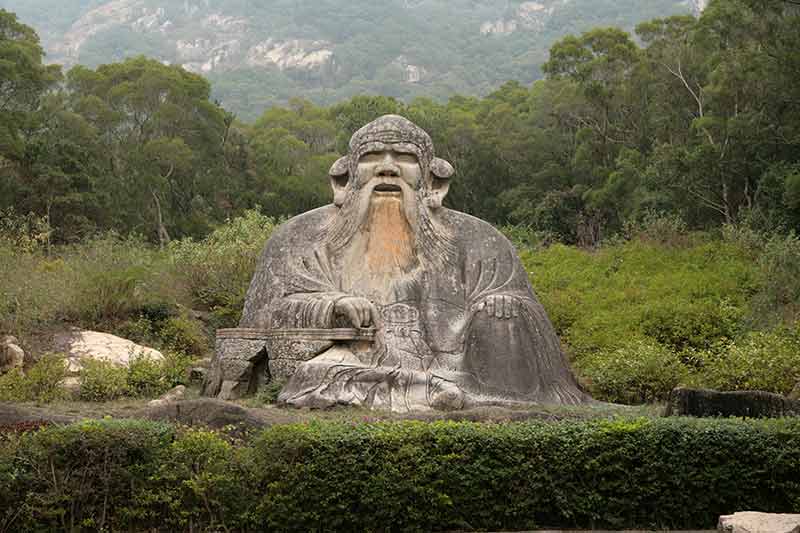
Oneness Between Heaven and Humans:
Daoism in an Era of Covid‐19
From Planet 239
by Peter Jingcheng Xu
Peter Jingcheng Xu offers an insight into how many Chinese people interact with the natural world, as a counterpoint to the mainstream Western media fixation on ‘wet markets’ and environmental despoliation in China. He argues that Daoism, which has an enduring influence on millions of people, has much to offer for collective global struggles against pandemics and climate change.

Above: Statue of Laozi in Quanzhou © Tom@HK (CC BY 2.0) https://bit.ly/39196FX
Many of the most heated debates around the source of Covid-19 orientate around Huanan Seafood Market in Wuhan, the presence of viruses in bats, and the notion of the ‘wet market’ in China. Countless mainstream Western media features on this subject are unfair, and often not fact-based. ‘Wet markets’ do not necessarily sell wildlife, for a start. One thing that can be certain is that no bat (bats being widely believed to be a direct source of varied human viruses, including Covid-19) was sold in Huanan Seafood Market,1 and eating bats is not part of Wuhan residents’ dietary habits, as is argued in a paper entitled ‘The possible origins of the 2019-nCoV coronavirus’ published by Botao Xiao and Lei Xiao on February 6, two scientists from South China University of Technology and Wuhan University of Science and Technology respectively. Moreover, hardly anyone across China would have bats on their dinner tables.
Sign in to read moreAbout the author
Peter Jingcheng Xu is a lecturer at the Guangdong University of Foreign Studies. He completed his PhD at Bangor University in 2018. He has translated into Chinese poets such as Gillian Clarke, Jason Walford Davies, Ian Gregson, Nia Davies and Robert Minhinnick, and into English a wide spectrum of Chinese literary texts.

